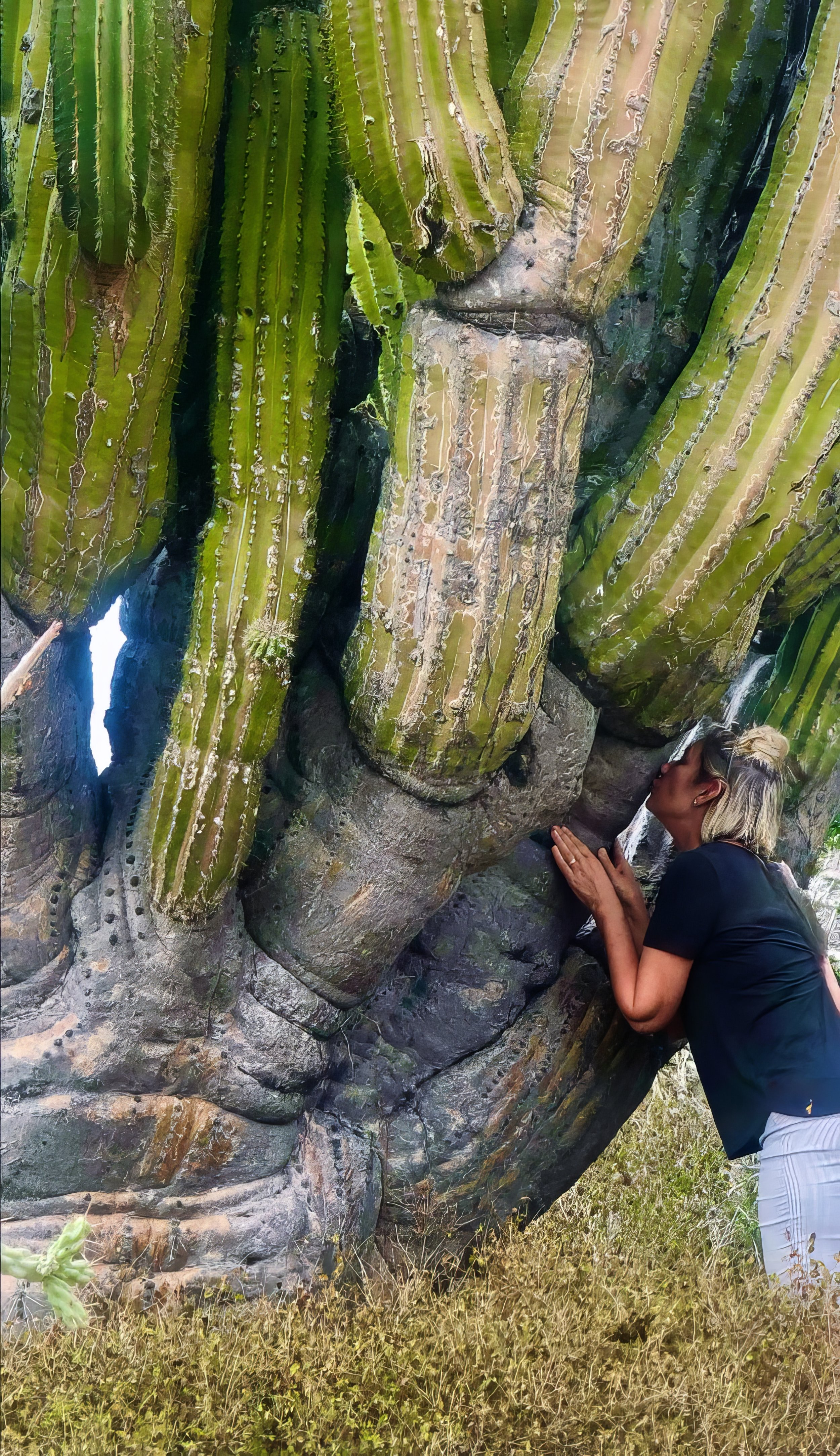Ever Kissed a Cactus?
I have a love of trees—especially Redwoods. Their towering presence, the way their bark yields softly to touch, the quiet reassurance they offer. Lean in, they seem to say. I can take it.
But today, I am nowhere near a Redwood. I am in the desert, surrounded by cacti—aloof, ancient, armored. They stand like silent elders, their wisdom carved into ridges, their defences sharp and unwavering. They do not beckon. They do not invite.
Still, I am drawn in. I want to touch one. To prove—to whom, exactly?—that even something covered in spines has a heart that longs for connection.
The thought should make me laugh. Instead, it feels urgent. Necessary. As if, in this moment, I need to believe that something can be both beautiful and unapproachable, both resilient and untouchable.
Maybe because—I realize with a sudden, sinking clarity—I know what it is to be a cactus.
Yesterday, I caught my reflection in the mirror before dinner. My fingers traced a few extra folds of skin, and instead of meeting myself with kindness, I bristled. Then, minutes later, when my friend cracked a harmless joke, I snapped. A barb, sharp and unprovoked.
Later, an email arrived with difficult news—a friend in the hospital, afraid. And without thinking, I turned my own fear outward, lashing out at someone who had merely asked me about my day.
CACTUS.
The pattern is undeniable. When I feel vulnerable—when self-doubt creeps in, when life feels unsteady, when I sense my own softness as a liability—I react. Not with tenderness, but with armour. Not with openness, but with thorns.
And then the shame follows. Because that is not who I want to be. That is not how I want to love.
I turn back to the saguaro in front of me, its massive arms reaching skyward. They say each arm represents a decade of survival. This one has at least ten. A century of resilience. A lifetime of adapting to drought, to storms, to whatever the world has thrown its way.
I take a breath and step closer.
This cactus is not ashamed of its spines. It does not apologize for them. It exists as it is—steadfast, strong, whole.
Can I do the same? Can I stop longing to be a Redwood when, sometimes, I am a cactus? Can I accept that my instinct to protect myself does not make me unlovable? That, like this ancient sentinel, my spines are not a failure but a feature?
Maybe the question is not how do I stop being a cactus? Maybe it’s how do I honour myself even when I am one?
I do not have the answer yet.
But I press my palm to the air between us, a breath away from the spines, and whisper, I see you.
And for now, that is enough.
